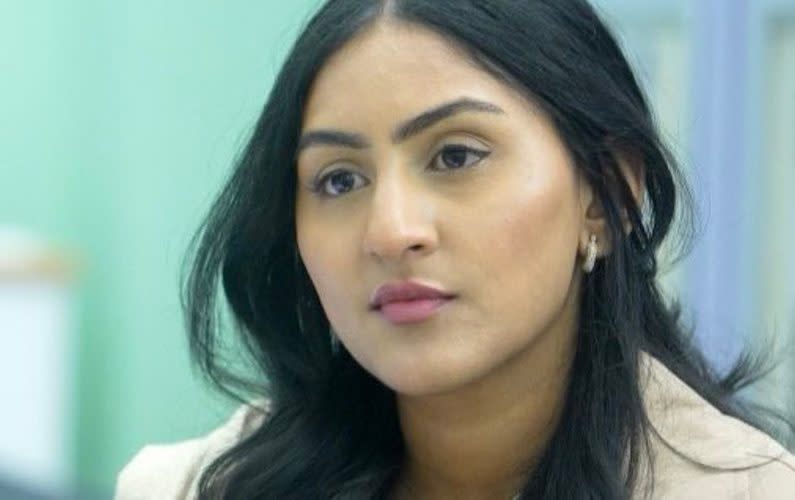BBC journalist ‘liked’ tweet describing reports of Hamas rapes as ‘nonsense’

A BBC Wales journalist liked a tweet describing reports of rape perpetrated on Oct 7 as “nonsense”, it has emerged.
Shazia Ali liked a post - published on Oct 8 - that said: “Nobody raped anyone. Stop this nonsense.”
The news reporter also “liked” a series of other tweets that appeared to justify Hamas’ atrocities on Oct 7, including a post from a different account that said: “You can’t expect a beaten and caged lion to purr when he finally breaks free.”
Another post liked by Ms Ali said: “Y’all wanted ‘decolonization’ and ‘land back’ til they decolonized and took the land back. i won’t forget [sic].”
A different tweet from a separate account quoted the French Marxist Frantz Fanon saying “decolonization is always a violent phenomenon”.
Ms Ali, from Swansea, wrote on a website showcasing the experiences of Welsh people of BAME backgrounds: “My passion for journalism is centred around telling real people’s stories, giving coverage to BAME communities, and presenting them as more than just victims, they are victors!”
The findings come after it was revealed that the BBC is still employing several BBC Arabic journalists who appeared to endorse Hamas’ Oct 7 attack, despite the corporation saying that it was “urgently investigating” the social media activity of its journalists working in the Middle East.
Social media guidelines
The BBC’s social media guidelines state: “Individuals working in news and current affairs and factual journalism production (all divisions) have a particular responsibility to uphold the BBC’s impartiality.”
It tells reporters: “Do not express a view on any policy which is a matter of current political debate or on a matter of public policy, political or industrial controversy, or any other ‘controversial subject’.
“Think about what your likes, shares, reposts, use of hashtags and who you follow say about you, your personal prejudices and opinions.”
A spokesman for CAMERA, a US-based media monitoring group that campaigns for “accurate and balanced” coverage of Israel, said: “Despite the BBC’s director-general having pledged to tackle the issue of inappropriate social media use on multiple occasions, as this example shows, little progress has been made on that front.
“The BBC’s claim to produce accurate and impartial ‘news you can trust’, including in relation to the current war in the Middle East, continues to be compromised by its own staff, some of whom - as Ms Ali’s social media activity demonstrates - are clearly woefully under informed on the topic of the Arab-Israeli conflict.”
In March this year, a UN report found that Hamas attackers raped women’s corpses citing “clear and convincing” evidence to support multiple accounts of sexual violence.
Pramila Patten, the UN special envoy on sexual violence and women, said there were “reasonable grounds” to believe Hamas committed “sexualised torture” when they carried out their attack on Israel on Oct 7.
A BBC spokesman said: “We do not comment on individual staff matters, however, we take any breaches of our social media guidance very seriously and always take appropriate action wherever necessary.”
Shazia Ali was approached for comment.


